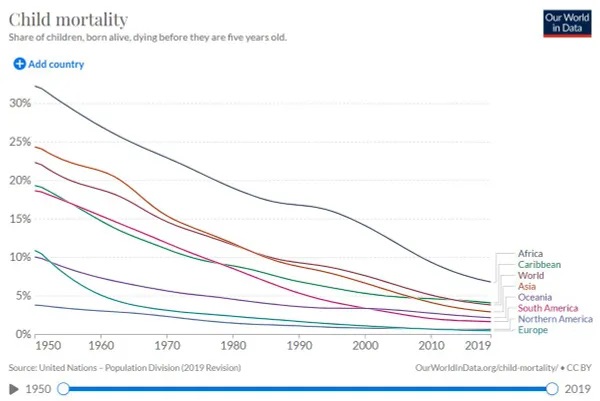
Thoughts from John Donne
Now was there ever any man seen to sleep in the cart, between Newgate and Tyburn?
Between the prison, and the place of execution, does any man sleep?
And we sleep all the way; from the womb to the grave we are never thoroughly awake.
If the human soul was visible, he believed, it would be larger than the world itself. “It is too little to call Man a little world; except God, man is a diminutive to nothing. Man consists of more pieces, more parts, than the world doth, nay, than the world is,” he wrote in “Devotions Upon Emergent Occasions.” Tap humans, he believed, and they’d ring with the sound of infinity.
We humans are both miracles and catastrophes. We must, he demanded, acknowledge both death and joy, horror and awe. It is an astonishment to be alive, and life calls on you to be astonished; but lifelong astonishment will take iron-willed discipline.
Wake, his writing tells us, over and over. Weep for this world and gasp for it. Wake, and pay attention to our mortality, to the precise ways in which beauty cuts through us. Pay attention to the softness of skin and the majesty of hands and feet. Attention — real, sustained, unflinching attention — is what this life, with its disasters and delights, demands of you.
Katherine Rundell
Ripening
Youthful hopes have concrete goals, whereas the hope of older years is usually aimless hope, hope without goals, even naked hope — perhaps real hope.
Such stretching is the agony and the joy of later years, although one can avoid both of these rich experiences too. Old age, as such, is almost a complete changing of gears and engines from the first half of our lives, and does not happen without many slow realizations, inner calmings, lots of inner resistance and denials, and eventual surrenders. All of them by God’s grace work with our ever-deepening sense of what we really desire and who we really are.
Reality, fate, destiny, providence, and tragedy are slow but insistent teachers. The horizon of old age seems to be a plan that God has prepared as inevitable and part of the necessary school of life. What is gratuitously given is also gratuitously taken away, just as Job slowly came to accept. And sometimes we remember that his eventual pained response was “Blessed be the name of the Lord!” (Job 1:21).
Richard Rohr
the ancient notion of sacral kingship.

sacral kingship
This notion was the rock which the political structure of all medieval societies was built, and in theory at least it is still the architecture which supports the matter of Britain, whose bishops still sit in parliament with the power to amend laws, and whose monarch’s crown is adorned with a cross. Authority, in this model of society, flows downward, from God, and into the monarch, who then faces outward with that given power and serves – and rules – his or her people.
Forget for a moment whether you’re a Christian, or a monarchist, or indeed whether you just think this is so much humbug designed to disguise the raw exercise of power. I’m not trying to make a case here: I am trying to understand something that I think at least partly explains how we have got here.
The point of the model of sacral kingship is that all true power resides in and emerges from the great, mysterious, unknowable, creative power at the heart of the universe – the power which we call, for want of a better word, ‘God.’ Any power that the monarch may exercise in this temporal realm is not ultimately his or hers. At the end of the funeral today, the orb and the sceptre, symbolising the Queen’s spiritual and temporal authority, were removed from the top of her coffin, along with the crown, and given over to the care of the church. At that point, Elizabeth became symbolically what she had always been in reality, and we all are – small, ordinary people, naked before God.
This notion – that any power exercised by a human ruler ultimately derives from the spiritual plane – is neither British nor European. It is universal. Pharaonic Egypt recognised it, and so did Native America. The Anglo-Saxons believed it and so did the Japanese Emperors. Cultures large and small, imperial and tribal, on all continents over many millennia, have shared some version of this understanding of what the world is. Power, it tells us – politics, it insists – is no mere human confection, because the world is no mere human confection. There is something – someone – else beyond it, and if we are silent, in these cathedrals or in these forests, we can hear it still. Those who take power in this world will answer to it at the end. It is best that they know this now.
What is meaningful about this royal death is that the late Queen really believed this. So, I think, does her son, the new King. But the society around him very much does not. The understanding now is that authority flows upward from below, from ‘the people’ and into the government, which supposedly governs on our behalf. In this model there is no sacred centre, and there is no higher authority to whom we answer. There is no heavenly grant of temporary office which will one day be returned, and a tally made. There is only raw power, rooted in materiality, which in itself has no meaning beyond what we ascribe to it. There is only efficiency. There is only management. There are only humans.
I am thinking that there is a throne at the heart of every culture, whether we know it or not, and that if we cast out its previous inhabitant – and the entire worldview that went along with it – we had better understand what we plan to replace it with. Someone, or something, is going to sit on that throne whether we know it or not. I can’t think of any societies in history which have believed – as ours does – that all that matters is matter. That nothing resides above the spires of the Abbey. That there is no throne. If there were any cultures like that – well, they didn’t last to tell us about it.
https://paulkingsnorth.substack.com/p/intermission-last-post-for-christian?utm_source=substack&utm_medium=email
“social contract.” We agree to give away a certain amount of our power and self-interest in order to make a better life possible. Of course, the contract is always under pressure as our natures war with one another.
…hospitality as a way of diminishing division. Jesus’ word were that we are called to love our enemies in order to turn them into neighbors, and a neighbor is one with whom we share the table and the living room and the coffee shop. Divisions maintain social order; hospitality disrupts and reorders social order.
Jay Kim
Abundance
Abundance is not the wealth of things. Nor is abundance the absence of hardship, suffering, tragedy, or loss. Abundance is the unwavering, powerful presence of God in the midst of hardship, suffering, tragedy, and loss.
J D Walt
What Kind of Person Are We Becoming?
Contemplative elder and Benedictine Sister Joan Chittister writes of the humility we must cultivate if we hope to grow in love and compassion as we age:
If we learn anything at all as time goes by and the changing seasons become fewer and fewer, it is that there are some things in life that cannot be fixed. It is more than possible that we will go to our graves with a great deal of personal concerns, of life agendas, left unresolved. . . . So has life been wasted? Has it all been for nothing?
Only if we mistake the meaning of the last period of life. This time of life is not meant to solidify us in our inadequacies. It is meant to free us to mature even more. . . .
This is the period of life when we must begin to look inside our own hearts and souls rather than outside ourselves for the answers to our problems, for the fixing of the problems. This is the time for facing ourselves, for bringing ourselves into the light.
Now is the time to ask ourselves what kind of person we have been becoming all these years. And do we like that person? Did we become more honest, more decent, more caring, more merciful as we went along because of all these things? And if not, what must we be doing about it now? . . . Can we begin to see ourselves as only part of the universe, just a fragment of it, not its center?
Can we give ourselves to accepting the heat and the rain, the pain and the limitations, the inconveniences adiscomforts of life, without setting out to passively punish the rest of the human race for the daily exigencies that come with being human?
Can we smile at what we have not smiled at for years? Can we give ourselves away to those who need us? Can we speak our truth without needing to be right and accept the vagaries of life now—without needing the entire rest of the world to swaddle us beyond any human justification for expecting it? Can we talk to people decently and allow them to talk to us? . . .
Now, this period, this aging process, is the last time we’re given to be more than all the small things we have allowed ourselves to be over the years. But first, we must face what the smallness is, and rejoice in the time we have left to turn sweet instead of more sour than ever.
A blessing of these years is the opportunity to face what it is in us that has been enslaving us, and to let our spirit fly free of whatever has been tying it to the Earth all these years.
Driving a Stick shift
…people have this sense about why they drive their stick shift. They go through phases of justification for it. First they try to talk about its practical benefits, all of which don’t really apply today. Then you get left with this word: control. “I feel like I have greater control.” I feel like for me, and for a lot of stick-shift drivers, it’s a sense of being connected to a complex human-made machine Ithat you feel in conversation with, rather than subject to its demands that you have to accept. That feeling is really rare now when it comes to interacting with devices of almost any kind.
Ian Bogost

Misconception
a wrong or inaccurate idea or conception
What do you need to hunt, capture, and replace misconceptions? Data.
In 2016, 141 million children were born and 4.2 million died. A tragic and disturbing number that deserves attention. What is not realized is the progress made in reducing levels of infant mortality.

The point is not to diminish the tragedy 4.2 million infant deaths but to recognize and celebrate real progress. Examination of data reveals where and how progress has been made and provides focus on where to apply that knowledge more effectively.
STILL ON THE JOURNEY